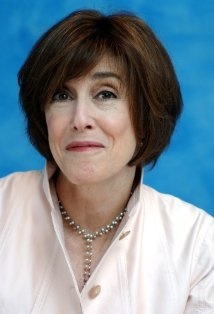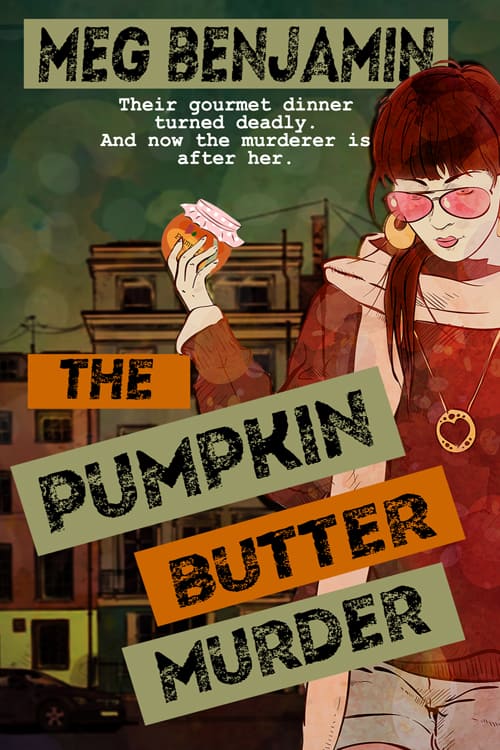Nora Ephron: An Appreciation
 When Nora Ephron died a few months ago, I knew I had to write something about her. I just wasn’t ready to do it right then. It took me a little while to understand just what I wanted to say about her and why. I’m not sure I know the what and why yet, but I’m ready to talk about it now, particularly now that the end of the year tributes have begun to come in.
When Nora Ephron died a few months ago, I knew I had to write something about her. I just wasn’t ready to do it right then. It took me a little while to understand just what I wanted to say about her and why. I’m not sure I know the what and why yet, but I’m ready to talk about it now, particularly now that the end of the year tributes have begun to come in.
I’ve read every book Ephron ever wrote. I haven’t seen all of her movies, but I’ve seen several of them and one—Julie and Julia—ranks as one of my all-time favorites.
I sort of stumbled across Ephron, long before she was famous. I saw her first book, Wallflower At the Orgy, at a bookstore many, many years ago and took it home just because it looked interesting. Wallflower At the Orgy consisted of interviews and articles she’d written for, among others, Cosmopolitan. They were lightweight pieces, the kind of thing young female writers used to do for mass market periodicals. But because it was Ephron, those lightweight articles frequently had a bite. I remember one about a makeover she’d gone through for Cosmo. If you read women’s magazines, you know the kind of article I mean—writer goes to famous hair stylist or makeup artist and is remade, complete with pictures. Ephron’s take was slightly self-mocking, but it followed the usual formula for the type, except that she’d added a postscript to the original article in which she filled in the details her Cosmo editor wouldn’t let her include, like the fact that her friends and family thought she looked weird after the makeover, and that she herself was far from pleased with the result. It was a welcome bit of vinegar in what’s usually a fairly saccharine type of article.
Ephron’s next book was the one that really brought her to national prominence: Crazy Salad. Ephron was a feminist, without qualification or demur (as am I—live with it). But she wasn’t one of those feminists who refuses to see any problems or absurdities in the movement. Some of Crazy Salad is undoubtedly a bit dated (consciousness-raising groups have been replaced by book clubs), but articles like “A Few Words About Breasts” are still as relevant as they were forty years ago.
Crazy Salad was followed by Scribble, Scribble, a similarly trenchant collection of essays about journalism and writers in general, collected from Ephron’s columns for Esquire and New York. Again, she offers a snapshot of a particular time (the late seventies), but also insights that apply just as well to the present.
Then came Heartburn. I’ve written elsewhere about the revenge aspects of that novel, but it was also vintage Ephron—simultaneously funny and sad. It was the only fiction she ever wrote, and soon thereafter she switched to writing screenplays, at which she was spectacularly successful (three Academy Awards nominations, among many other awards).
She came back to essay writing with her later collections I Feel Bad About My Neck and I Remember Nothing, both about age and aging and both wonderful.
So why do I love Nora Ephron, besides the fact that she was a wonderful writer and a daunting role model? Maybe because she always sounded like someone you’d love to meet in real life. The ideal best bud, the person you really wanted to have lunch with so that you could dish and let her tell you how to handle that incredibly irritating person in your office. It wasn’t just Ephron’s formidable wit that made her charming. Dorothy Parker was witty in the extreme, yet I never felt I wanted to get to know her in person—Parker came across as someone who’d skewer you neatly the minute you stepped away. In contrast, Ephron’s wit was leavened with humanity. You wanted to hear what she had to say, and you really wished she could tell you what she thought.
I still wish that. I’d love to know what her take would have been on the War On Women or the election. And it makes me so sad to know we’ll no longer have a chance to hear it.
Nora Ephron. Ave Atque Vale.
Posted in Blog • Tags: nora ephron, On Life, On Writing | 2 Comments







I’m a fan but a later convert to her work. Though I’d fallen in love with her movies long ago without knowing her history. I read I Remember Nothing shortly before she died and was fascinated by her childhood and the interesting life she led. I agree, this was a woman with whom I’d have wanted to be friends. Much like I felt about Erma Bombeck. She’ll be sorely missed and I doubt anyone will fill the gap she leaves behind.
I’d agree. I really miss her commentary on daily life.